English Edition

- By CNI
- Category: English Section
- Hits: 428
CNI News
6 January 2026
It has been learned that the National Socialist Council of Nagaland–Khaplang/Ang Mai (NSCN-K/AM) has taken up troop positions in order to gain control of Pansaung town (area), located in Nanyun Township of the Naga Self-Administered Zone, Sagaing Region, which serves as a border trade exit point between Myanmar and India.
The NSCN-K/AM told CNI News Agency that its Naga armed unit has been deployed and assigned duties in the Pansaung area of Nanyun Township in the Naga region of Myanmar. According to the group, the unit arrived in Pansaung town on January 1, 2026.
The group stated: “We respectfully and sincerely express our heartfelt gratitude to the respected leaders and beloved local people of Pansaung town for warmly welcoming our Naga armed unit. The primary responsibilities of the Naga armed unit in this area are to ensure the security and safety of the people, to maintain peace and stability, and to encourage and promote comprehensive development activities in Pansaung town and surrounding areas.”
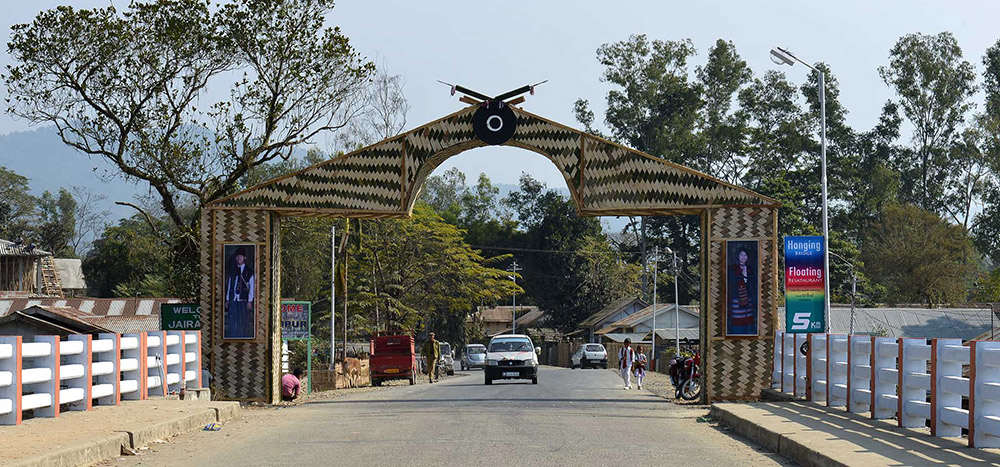
The Pansaung border gate
Pansaung town is an extremely important strategic area for the Naga region, as it is the only border trade exit point with India.
The NSCN-K/YA (Khaplang/Yung Aung) faction is also actively deploying and operating troops in the Pansaung area.
In addition, the Kachin Independence Army (KIA) has been holding discussions and negotiations with Naga armed groups in an effort to gain control over the Pansaung area and the border trade exit point.
It is reported that India, Myanmar, and China have agreed to renovate the Stillwell Road, also known as the Ledo Road. Under this agreement, India will take responsibility for the section from Pansaung and Nanyun to Mohnyin–Mogaung, while China will be responsible for the section from Mohnyin–Mogaung to the Lweje border trade gate.
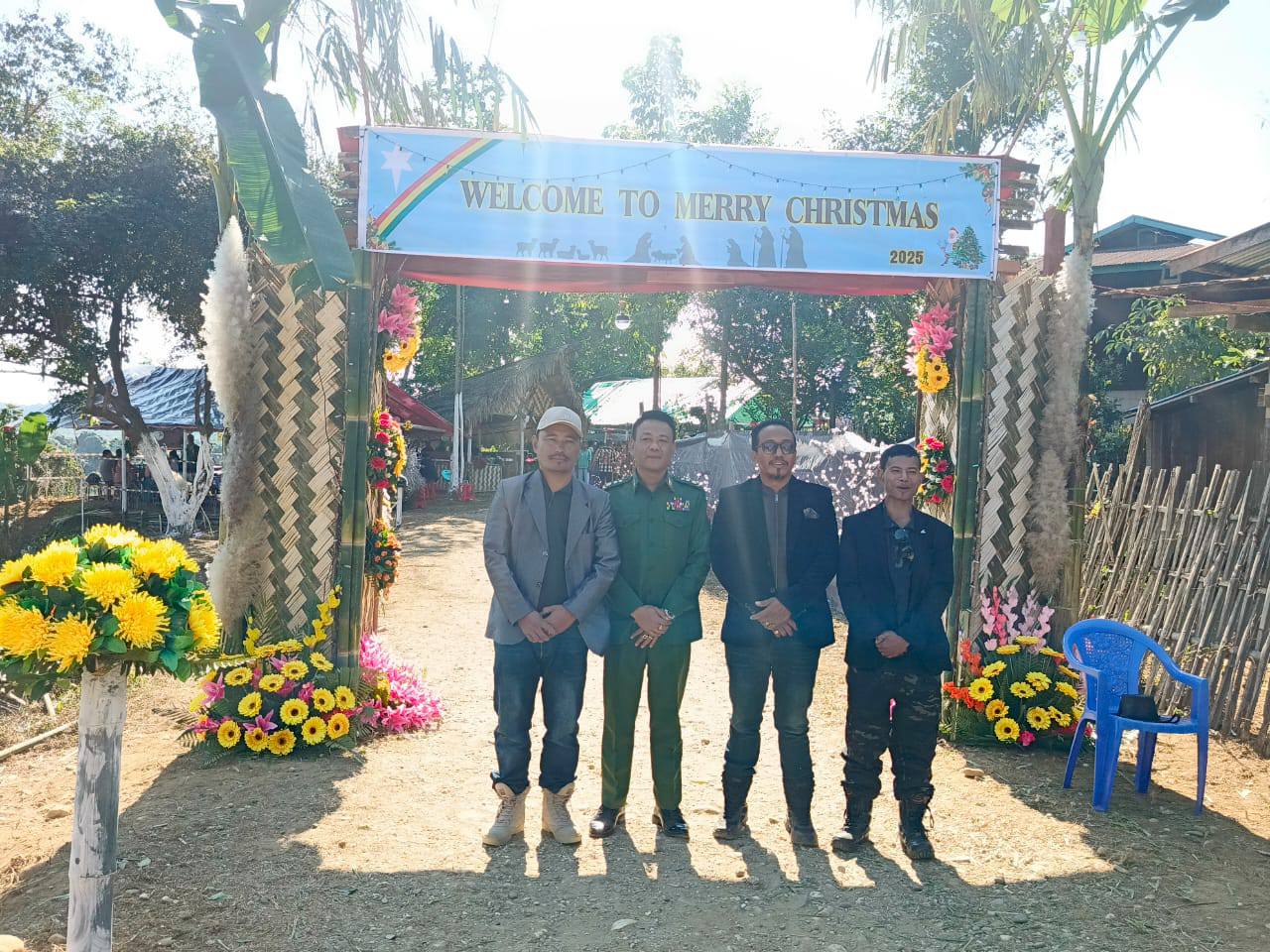
Myanmar Tatmadaw officers and NSCN-K/AM members celebrating Christmas on December 25, 2025
Subsequently, local sources say that India and the KIA have been focusing on the Pansaung area for the extraction and transportation of natural resources, including rare earth minerals produced in Kachin State.
At present, the Pansaung area is reportedly being controlled and administered by troops from NSCN-K/AM and NSCN-K/YA. A military observer from Sagaing Region pointed out that NSCN-K/AM has been able to gain broader control over the entire Pansaung area because it prioritizes peace and Naga development, maintains close relations with the Myanmar Armed Forces (Tatmadaw), and is therefore likely to receive support from the Tatmadaw.
Similarly, the observer noted that the Indian government may also provide support to NSCN-K/AM, as the group prioritizes peace and stability. Meetings and peace talks between NSCN-K/AM and the Indian government reportedly took place during 2025.

- By CNI
- Category: English Section
- Hits: 217
CNI News
5 January 2026
Senior General Min Aung Hlaing, Chairman of the State Security and Peace Commission, stated that a government characterized by fairness, high voter distribution, and strong integrated stability will be formed.
This statement was included in the message sent by the Senior General on the occasion of the 78th Independence Day, which fell on January 4, 2026.
Senior General Min Aung Hlaing said, "By employing a mixture of the First-Past-The-Post (FPTP) and Proportional Representation (PR) systems, we will work to form governments that ensure fairness, high voter distribution, and integrated stability. According to the election results, the state responsibilities will be handed over to the emerging government in accordance with democratic standards."
In Myanmar, the first phase of the election was held on December 28, 2025, across 102 townships. In this first phase:
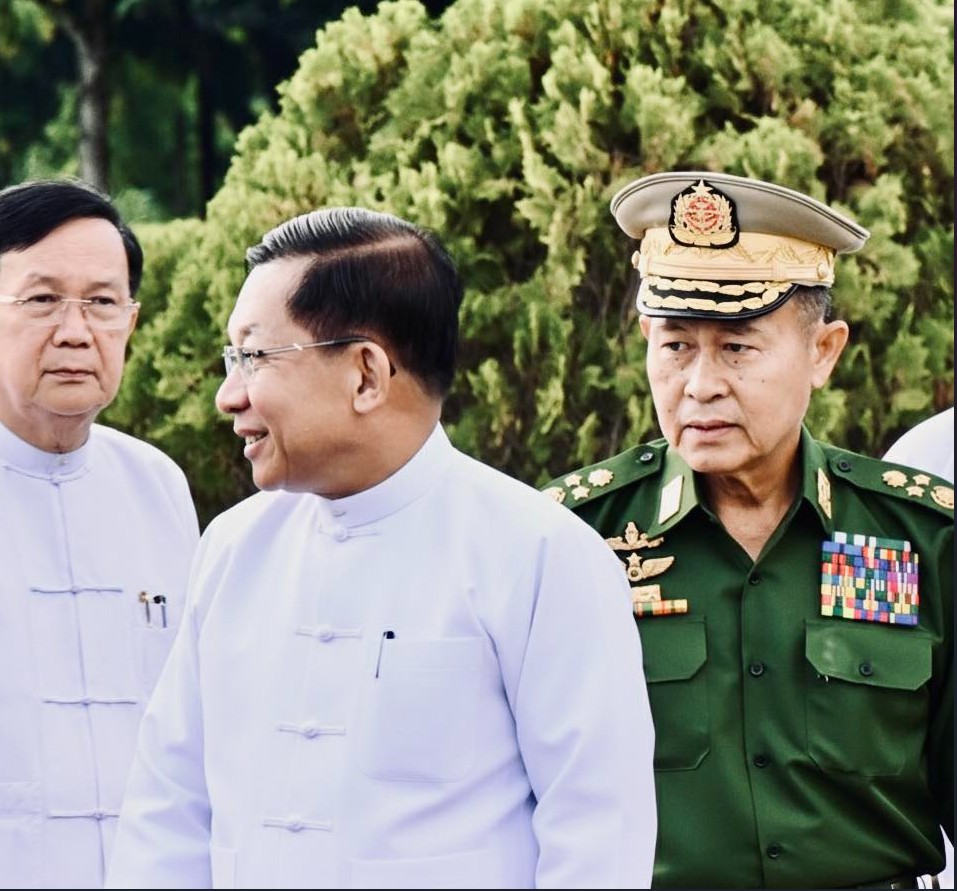
The Union Solidarity and Development Party (USDP) won 80% of the seats. The National Unity Party (NUP) secured the second-highest number of seats.
Ethnic political parties won the third-highest number. The election process is scheduled to continue in phases: Phase 2: January 11, 2026 (100 townships).
Phase 3: January 25, 2026 (63 townships).
Observers note that the post-election government is expected to be led by the Military and the USDP. There are ongoing concerns regarding the potential emergence of a government with highly centralized control.
Meanwhile, everyone hopes for the emergence of a form of national unity government as a means to end the ongoing political and armed conflicts within Myanmar.

- By CNI
- Category: English Section
- Hits: 324
CNI News
3 January 2026
Following Phase (1) of Myanmar’s election held on December 28, 2025, the public has been closely watching to see whether the People’s Party (PP) and the People’s Pioneer Party (PPP) won any seats.
Phase (1) of the election was held on December 28 across 102 townships nationwide. Contrary to what many people are saying—that they did not win anywhere—U Saw Han Aye, Vice Chair of the People’s Pioneer Party (PPP), told CNI News that this was not entirely true.
He said: “Under the FPTP system, PPP did not win any seats in the constituencies we contested. However, we have heard that some ethnic representatives won about two seats. But the vote counting is not yet complete. Votes have not been fully counted across entire states and regions, so we cannot say for certain about those ethnic representatives. As for FPTP, no one has won. Under the FPTP system, we did not win seats in either the Pyithu Hluttaw or the regional/state hluttaws. We still need to wait for the Amyotha Hluttaw results. To be frank, we did not expect to lose this badly. The main problem is that, honestly, we do not know how many advance votes there were or how many we received. However, votes cast in person by the public appear to have been for various parties and independent candidates. The rest likely came from the core supporters of the larger party. Voter turnout was low in some areas, while in others it exceeded 50 percent. This means we need to encourage more people to come out and vote in Phase (2) and Phase (3).”
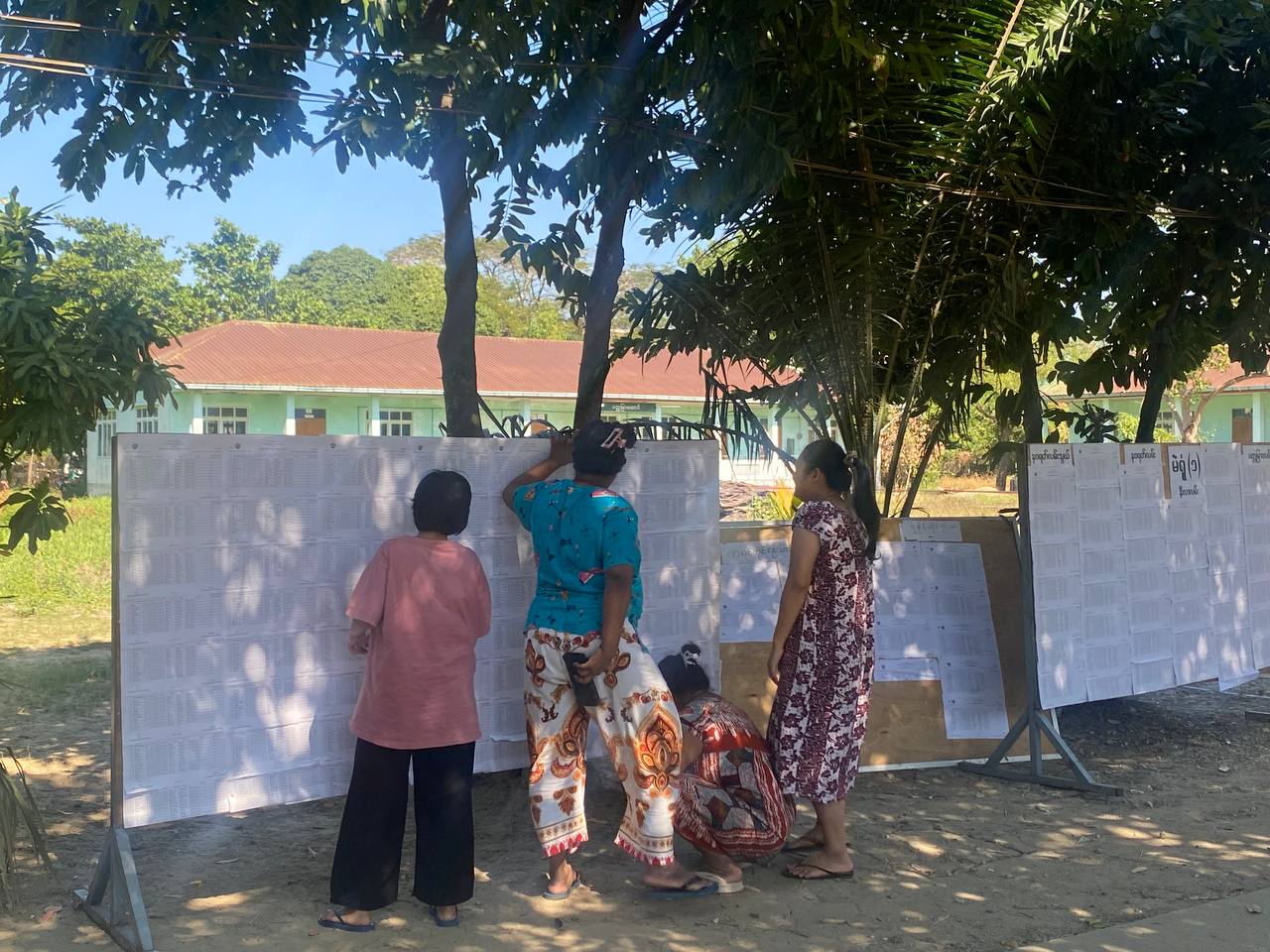
People checking voter lists
In Myanmar’s election, six parties are competing nationwide. These are the People’s Party (PP), the People’s Pioneer Party (PPP), the Union Solidarity and Development Party (USDP), the Shan and Nationalities Democratic Party (SNDP), the Farmers Development Party, and the National Unity Party (Ta Sa Nya).
Among these, PP and PPP were expected to receive strong public support, but due to very low voter turnout, they achieved limited victories. The USDP reportedly won about 80 percent nationwide; however, critics point out that USDP’s victories were influenced by advance votes and complicated voter lists.
The People’s Party (PP) won one regional Hluttaw seat in the Myeik constituency of Tanintharyi Region, but this result is currently under dispute due to an objection filed by the USDP.
Regarding Phase (1), PP Chair U Ko Ko Gyi told CNI News that after the USDP and the National Unity Party, the People’s Party ranked second.
He said: “According to our preliminary vote lists, we won all three seats in Myeik—the Pyithu Hluttaw, the regional Hluttaw, and the Amyotha Hluttaw. In the final confirmed results, we clearly won one seat in the regional Hluttaw. The remaining vote lists have still not been released. In other areas such as Yamethin and elsewhere, our vote results are also quite strong.
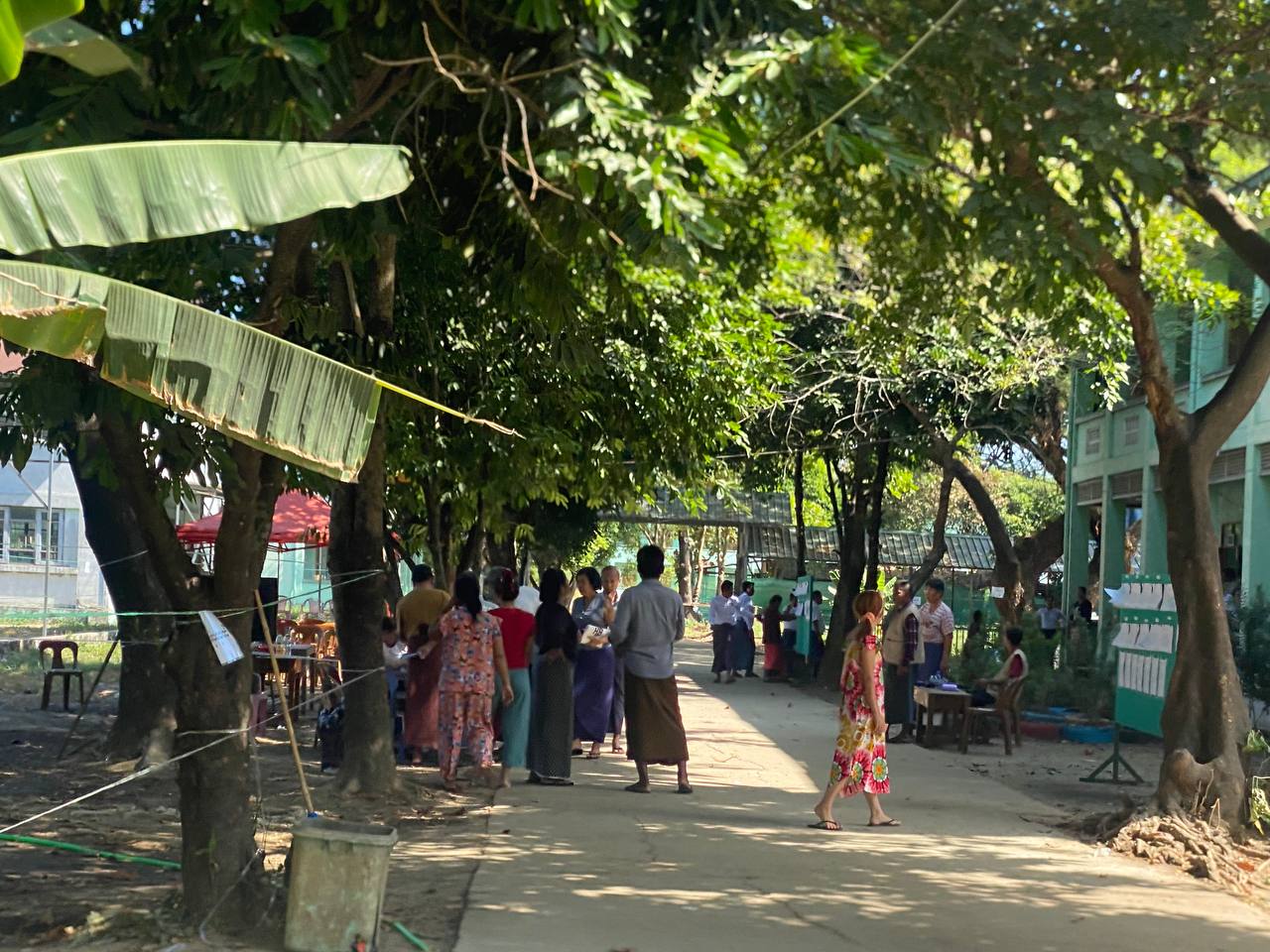
Voters casting ballots
Overall, after the USDP and the National Unity Party, our party stands second in some areas and third in others in terms of total votes received. We believed—and hoped—that the upcoming parliament would be truly diverse in composition. In the past, everyone has experienced parliaments dominated by a single party. Therefore, we wanted this parliament to be appropriately diverse. However, judging from the Phase (1) results, it appears to be moving back toward a single-party-dominated structure.”
In Phase (1) of the election held on December 28, most candidates from the People’s Pioneer Party (PPP) led by Daw Thet Thet Khaing, the Arakan Front Party (AFP) led by Dr. Aye Maung, and the People’s Party (PP) led by U Ko Ko Gyi were defeated, with only a small number winning seats.
Phase (1) of Myanmar’s election has now concluded. Phase (2) will be held on January 11, 2026, in 100 townships, and Phase (3) will be held on January 25 in 63 townships.
Overall, the election involves 6 union-level parties, 51 regional or state-level parties, totaling 57 political parties, along with 4,863 independent candidates.

- By CNI
- Category: English Section
- Hits: 487
CNI News
3 January 2026
The intensifying battles in Bhamo Township, Kachin State, are a result of the Kachin Independence Army (KIA) seeking leverage in negotiations with China, according to Colonel Khun Okkar, Chairman of the Pa-O National Liberation Organization (PNLO-NCA/S), a signatory of the Nationwide Ceasefire Agreement (NCA).
Fighting resumed in Bhamo on December 25, 2025, and has currently escalated to include almost the entire town.
Meanwhile, on December 25, the Naypyidaw authorities announced that the third phase of the 2026 General Election, scheduled for January 25, would include Bhamo, Mansi, Momauk, Hpakant, and Shwegu townships in Kachin State.
Colonel Khun Okkar told CNI News that the current battle for Bhamo is not intended for long-term occupation but is being fought as a strategic move for bargaining.
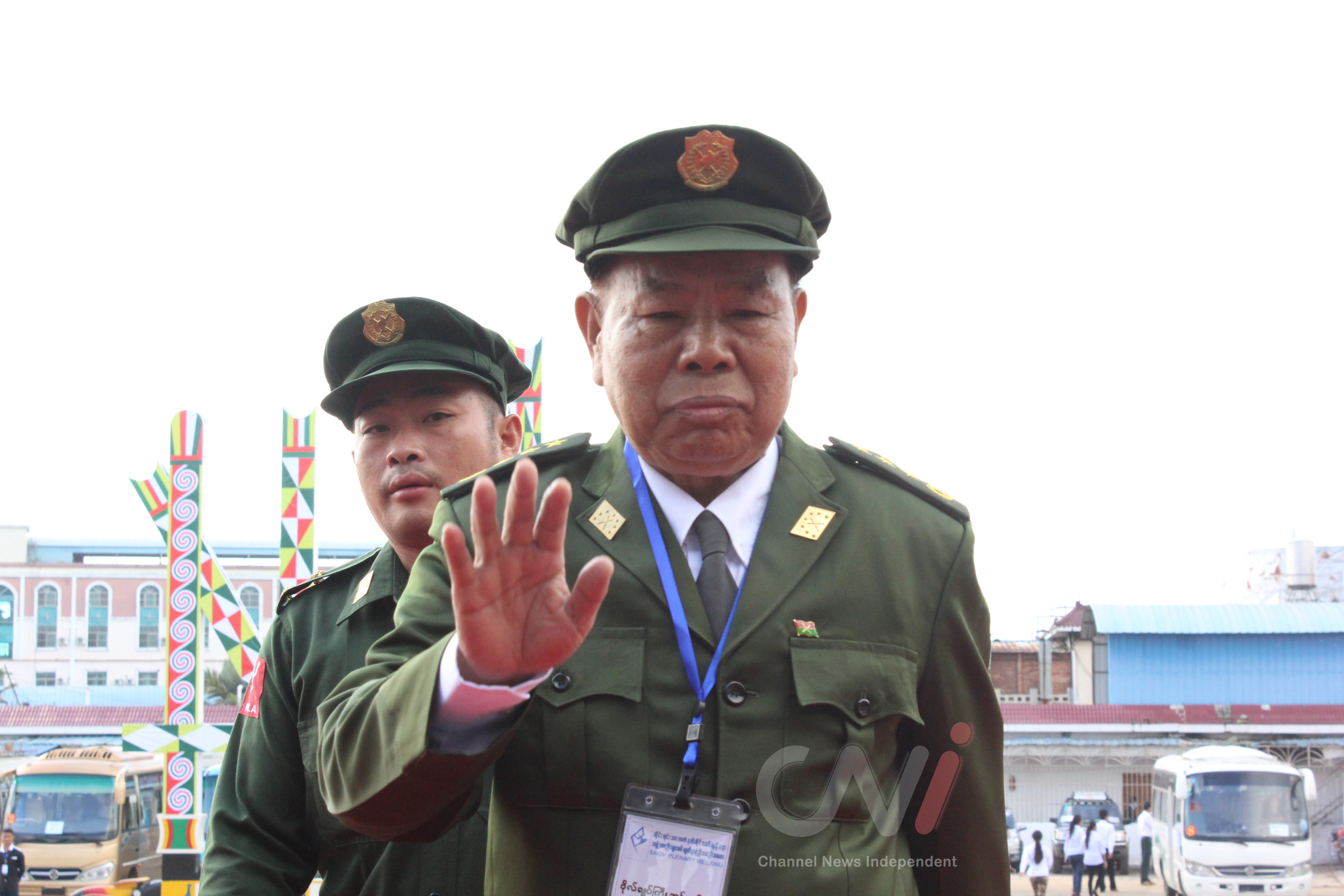
KIA leader General N'Ban La
"The battles in Bhamo and similar areas are 'face-saving' battles. Both sides know these fights will eventually stall because China itself is involved. At some point, China might tell the KIA to stop the Bhamo offensive. The KIA is likely waiting for that moment. When told to stop, the KIA can then negotiate: 'If we stop, which border gates will you reopen? What rights will you restore?' They want bargaining power. They are fighting to gain that leverage for an exchange. It’s not about holding Bhamo permanently; it’s about territory control to secure bargaining power when a deal arises. We saw this with Lashio, Hsipaw, and Kyaukme. Once deals were struck, those towns returned to the control of the Tatmadaw. Everything is part of the bargaining process. So, whether they can fully capture Bhamo or not, the act of fighting is for the sake of the deal. If they give and take without fighting, what will they get in return? That is the key," he said.
While fighting is currently intense in Bhamo, the KIA has already captured and occupied the towns of Mansi and Momauk since 2024.
However, according to a statement released on the night of December 27, 2025, elections will not be held in 1,002 village tracts and 62 wards in Kachin, Chin, Shan, Rakhine, Karen States,Sagaing, Tanintharyi, Bago, Mandalay and Ayeyarwady Regions, including 43 village tracts in Bhamo, 43 in Mansi, 65 in Momauk, 39 in Shwegu, and 8 in Hpakant.
Dr. Hla Kyaw Zaw, an observer of China-Myanmar affairs, told CNI News that both the KIA and China hold their own "cards," and it remains to be seen how they will trade them.
"The KIA has cards, and China has cards. China can close or open economic trade routes. On the other hand, the KIA controls rare earth minerals. They could choose not to sell to China or divert them elsewhere. I can't say exactly how they will negotiate. China’s primary goal is peace and stability along its border with Myanmar. How the KIA utilizes that, I am not sure," she said.
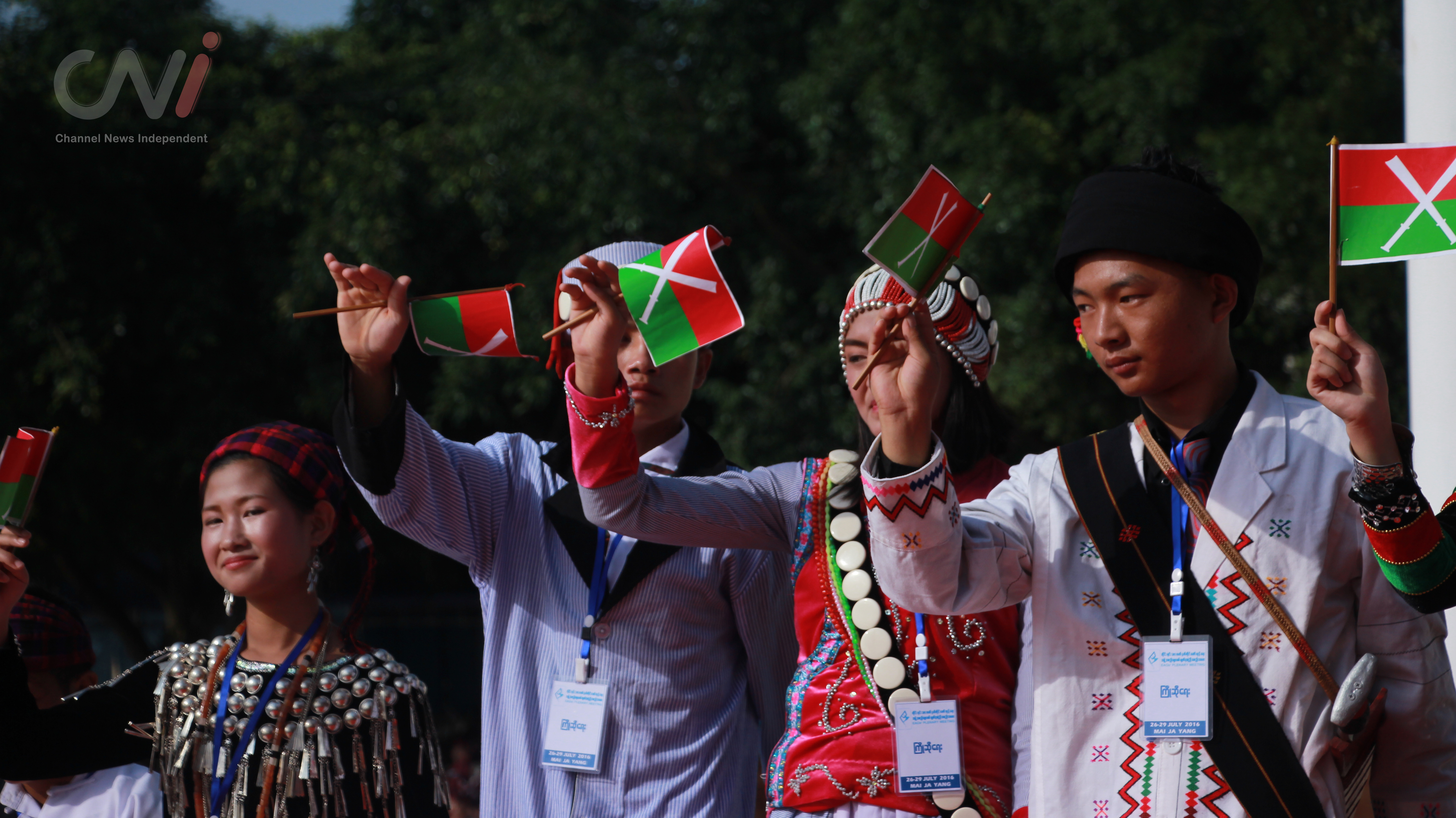
Kachin ethnic people
Additionally, a report by the US-based Silicon Valley Times claimed that a secret agreement was signed between the KIA and India in December 2025, uncovered through special intelligence investigations.
The Silicon Valley Times reported that based on satellite imagery and cross-border intelligence, India is constructing a 365-kilometer road from Vijaynagar in Arunachal Pradesh to rare earth mines in Chipwi, Kachin State.
This road, allegedly built without the permission of the Myanmar military or government, would allow India access to Myanmar’s rare earth resources. In exchange, India would provide the KIA with weapons, medicine, and other logistics. The partnership also reportedly includes a secret plan for a second strategic road connecting the KIA headquarters in Laiza through Sagaing Region to Rihkhawdar in Chin State.

- By CNI
- Category: English Section
- Hits: 287
CNI News
2 January 2026
In Phase 1 of Myanmar’s 2025 election, held on December 28, 2025, more than 6.09 million voters cast their ballots out of over 11.6 million eligible voters, according to the Union Election Commission (UEC) speaking to CNI News.
Myanmar’s election is being conducted in three phases. Phase 1 was held on December 28, 2025, Phase 2 will be held on January 11, 2026, and Phase 3 will be held on January 25, 2026.
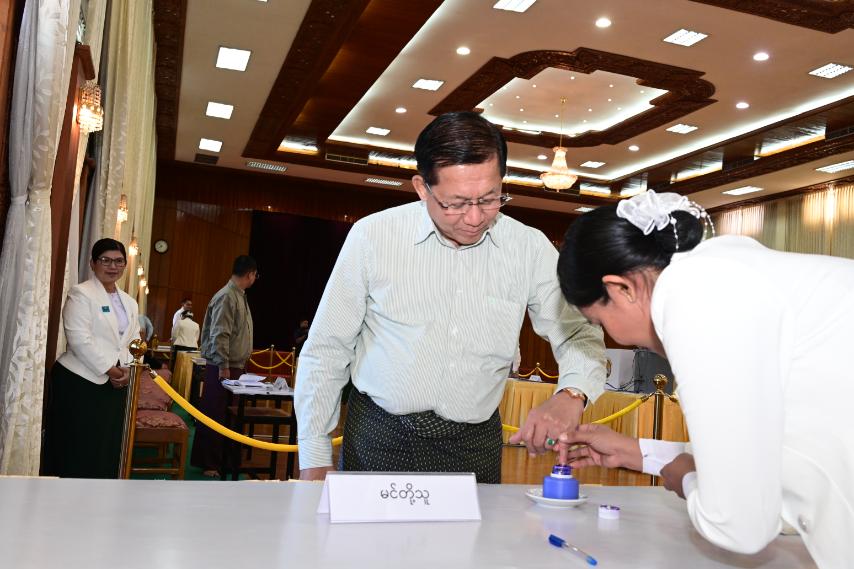
Phase 1, completed on December 28, 2025, was conducted in 102 townships.
The UEC also told CNI News that around 24.26 million people in total are eligible to vote across Phases 1, 2, and 3 of the election in Myanmar.

- By CNI
- Category: English Section
- Hits: 325
CNI News
2 January 2026
In Phase 1 of the 2025 election, held on December 28, 2025, the Shanni Kyar Min (King Tiger) Party achieved a decisive victory in Homalin Township, Sagaing Region, according to Sai Naing Naing Kyaw, Chairperson of the Shanni (Tai Leng) Solidarity Party (SSP), speaking to CNI News.
Known locally as the “Kyar Min Party,” the Shanni party won seats in the People’s Assembly (Pyithu Hluttaw), National Assembly (Amyotha Hluttaw), and Regional Assembly constituencies within Homalin Township.
Phase 1 of the election was held on December 28, 2025,. Phase 2 will be held on January 11, 2026, and Phase 3 on January 25, 2026.
Based on ground information from Phase 1, the Shanni (Tai Leng) Solidarity Party is believed to have secured victory in both the Pyithu Hluttaw seats and the Regional Hluttaw seats in Homalin Township, said SSP Chairperson Sai Naing Naing Kyaw.
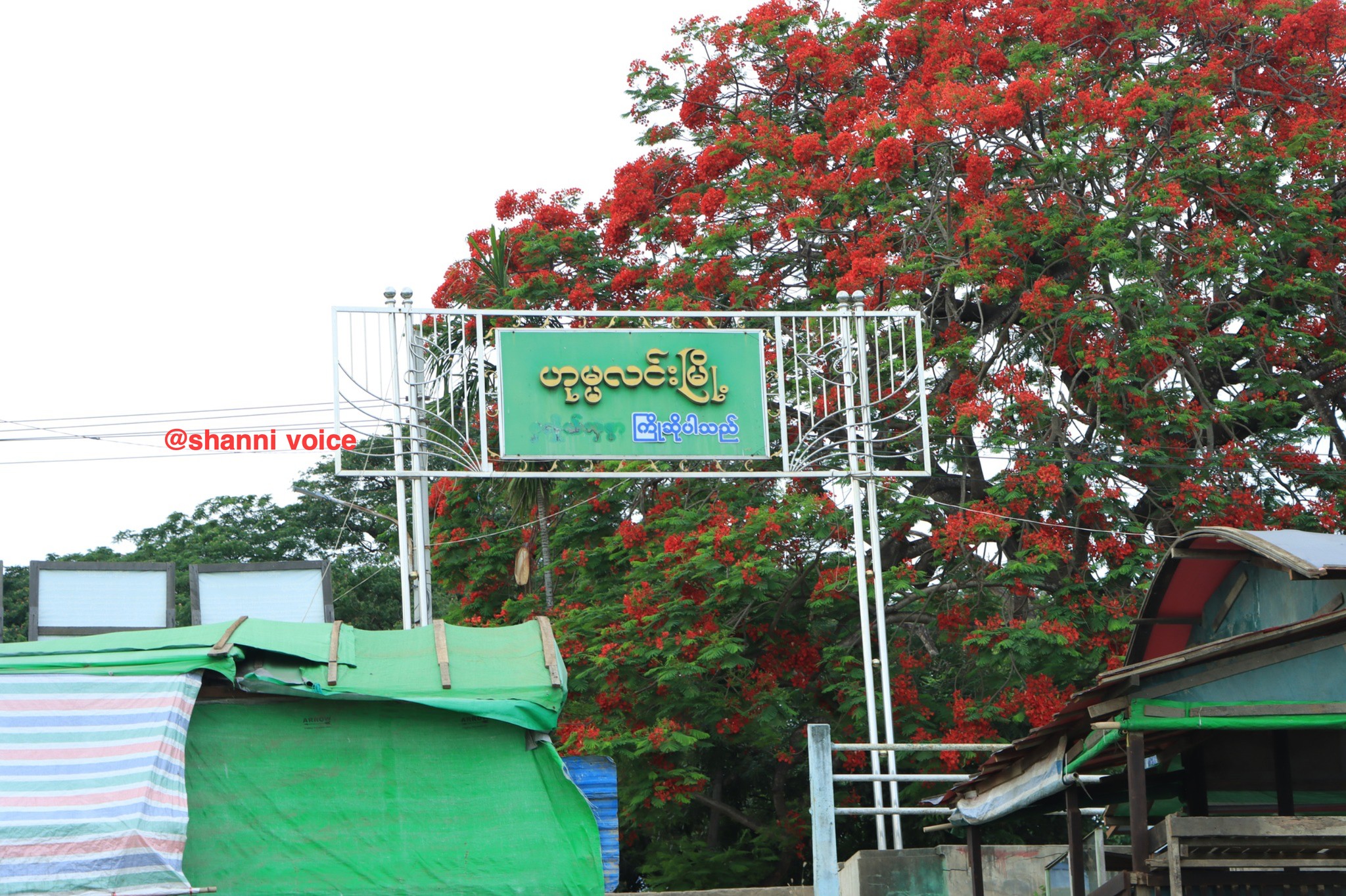
Homalin town (Shanni Voice)
He stated: “As the Kyar Min Party, we are only competing in Sagaing Region, and we have fielded 40 candidates. Since only Phase 1 has been completed, we cannot yet say how many seats we will win overall. But in a first-past-the-post system, as I mentioned earlier, we are certain to have won in Homalin — both the Pyithu Hluttaw seats and the Regional Hluttaw seats — based on available ground data. The Election Commission has not officially announced the results yet, but from what we have on the ground, we can confidently say we have won those constituencies in Homalin under the FPTP system.”
Only three-quarters of Homalin Township was able to participate in Phase 1 of the election. Due to security concerns, elections could not be held in Uru Chaung, Nat Nan regions, and surrounding village tracts.
However, according to SSP Chairperson Sai Naing Naing Kyaw, voter turnout in Homalin and Khamti townships was around 60%, though there were some shortcomings regarding the voter lists.
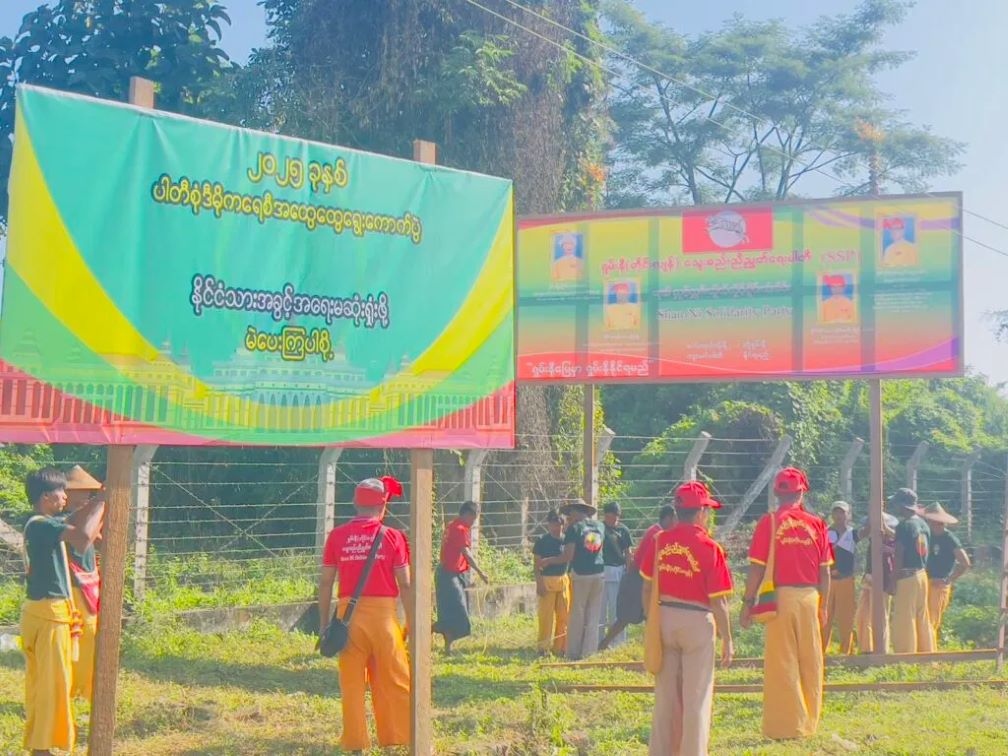
Shanni (Tai Leng) Solidarity Party (SSP)
He added: “On December 28, people came out to vote in Homalin and Khamti. We see this as an election comparable to a regular election. Based on available information, voter turnout was around 50% to 60%. Everyone is showing strong interest in the election. But we have noticed some weaknesses concerning the basic voter lists. For example, some people appeared in the voters’ list in the first and second editions, but disappeared in the final edition. Another issue: siblings with the same parents faced different eligibility status for ethnic votes. For instance, during ethnic voting for Shanni representatives, the younger brother was allowed to cast an ethnic Shanni vote, but the older brother was not eligible — cases like that were also found.”
In Homalin Township, two SSP candidates won: Sai Naing Naing Kyaw — Pyithu Hluttaw seat, Sai San Hla Soe — Regional Assembly seat.

- By CNI
- Category: English Section
- Hits: 219
CNI News
1 January 2026
Major General Zaw Min Tun, spokesperson of the National Defense and Security Council, said that the Myanmar military (Tatmadaw) assumed national responsibility because it could not avoid doing so, in order to prevent the emergence of a dictatorship under the name of democracy.
He made this remark on December 30, in relation to Phase 1 of the election, which was held on December 28, 2025.
Major General Zaw Min Tun said:
“As the government, due to electoral fraud committed by the ruling government and the NLD party in the 2020 election, we had to take national responsibility because we could not let the multi-party democratic system that the nation was advancing towards be destroyed, nor allow a dictatorship under the name of democracy to emerge.
From the moment we began taking responsibility, we laid down objectives to fulfil the desire of the people — to restore a multi-party democratic system. We have always aimed to hold a multi-party democratic general election.”
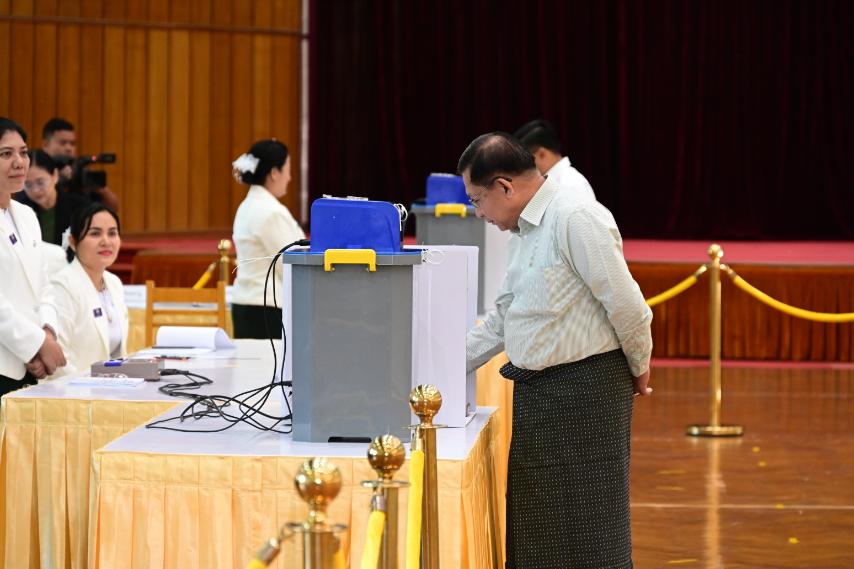
Senior General Min Aung Hlaing casting his vote
In November 2020, a general election was held in Myanmar, in which the National League for Democracy (NLD) won by a landslide.
More than 30 political parties and the Myanmar military requested the re-examination of disputed voter lists.
However, the military claimed that the NLD party and the NLD government did not resolve the voter list disputes and instead proceeded to form a government.
As a result, on February 1, 2021, the Myanmar military overthrew the NLD government, declared a state of emergency, and took control of the country.
On that same day, February 1, 2021, the NLD government was preparing to convene the parliament, and foreign diplomats had been invited as witnesses.
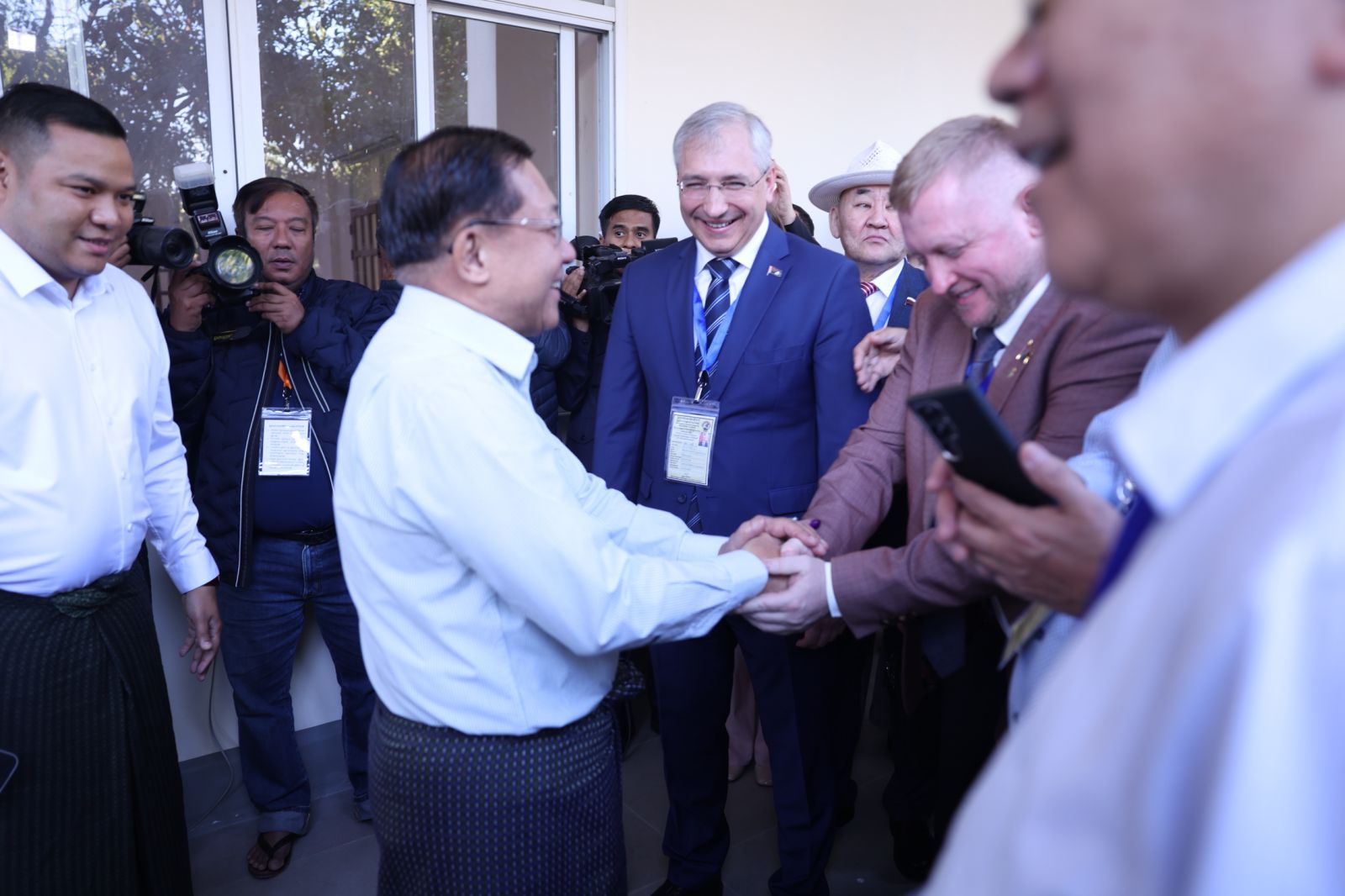
Senior General Min Aung Hlaing meeting foreign diplomats observing the election
Currently, the Myanmar military is holding the election in three phases.
Phase 1 was held on December 28, 2025.Phase 2 will be held on January 11, 2026, and Phase 3 will follow on January 25, 2026.
Senior General Min Aung Hlaing, the military chief, has said that after the election, the military will hand over state power to the political party that wins, and that the military will only continue to serve national defense duties.

- By CNI
- Category: English Section
- Hits: 267
CNI News
1 January 2026
While Phase 1 of Myanmar’s election was being held on December 28, 2025, 11 townships across the country were attacked by Spring Revolution forces, according to Brigadier General Zaw Min Tun, spokesperson of the State Defense and Security Council.
Major General Zaw Min Tun made the above statement in connection with the holding of Phase 1 of the election on December 30, 2025.
He said:
“The state-destroying terrorists and state-destroying media that are constantly bringing every kind of suffering to Myanmar and its people have always been plotting how to disturb and sabotage the election, and have been carrying out sabotage activities. They carried out threats, long-range artillery attacks, mine explosions, blocking vehicles of citizens coming to vote, dropping bombs with drones, and spreading misinformation — using various methods.
Up until December 28, the day the election was held, we witnessed short-range rocket attacks, mine explosions, and blockades in 11 townships located in Kachin State, Kayah State, Kayin State, Tanintharyi Region, Sagaing Region, and Mandalay Region.
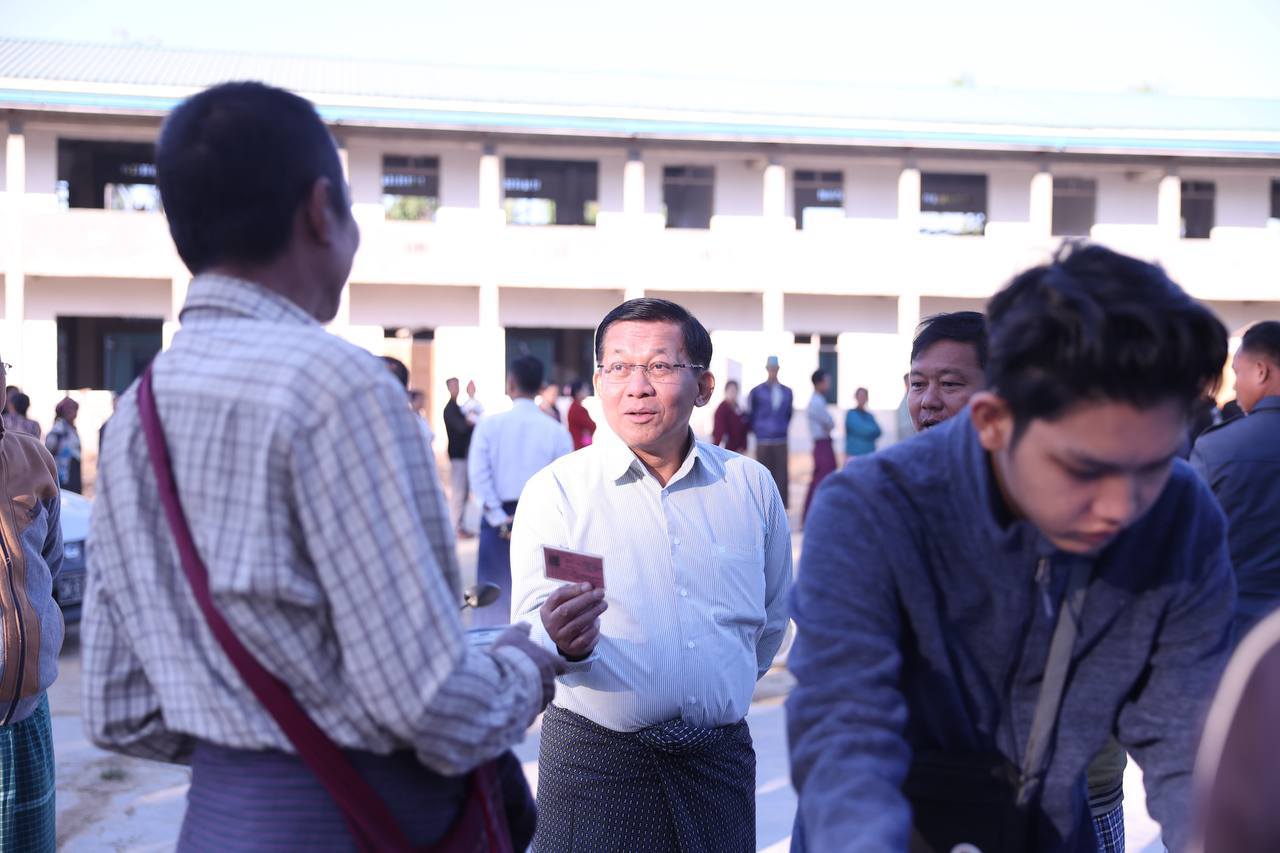
People waiting to cast their votes
However, with cooperation between security personnel, election officials, and the public in those townships, we were able to successfully hold the election.”
On December 27 and 28, Spring Revolution forces attacked 11 townships, namely Myawaddy, Loikaw, Nyaung-U, Katha, Mandalay, Myitkyina, Shwebo, Sagaing, Myingyan, Mottama, and Tamu, using drone-dropped bombs, short-range rockets, and small and heavy weapons.
In Katha Township, joint forces of KIA and PDF launched an offensive to seize the township on December 28, while some PDF units also came onto the Yangon-Mandalay Expressway and carried out inspections on passenger vehicles.
In Myanmar, Phase 2 of the election will be held on January 11, 2026, and Phase 3 will be held on January 25, 2026.
During Phase 1 of the election on December 28, 2025, over 11.6 million people were eligible to vote, and more than 6.09 million cast their ballots, according to the Union Election Commission (UEC), speaking to CNI News.

- By CNI
- Category: English Section
- Hits: 266
CNI News
31 December 2025
The Chairman of the Shan and Nationalities Democratic Party (SNDP), U Sai Aik Pao, told CNI News that he is dissatisfied with the recently concluded Phase 1 of the election and feels that it was conducted unfairly.
In Myanmar, Phase 1 of the election commenced on December 28, 2025. Phase 2 is scheduled for January 11, 2026, and Phase 3 for January 25, 2026.
U Sai Aik Pao expressed his lack of satisfaction regarding the first phase of the multi-party democratic general election.
"I am not satisfied. There was a massive influx of advance votes, while the number of people actually coming out to vote was low. Furthermore, there was no transparency regarding these advance votes; parties were not invited to witness the process. Right now, the situation with advance votes is very messy. I simply feel that there is no fairness," said U Sai Aik Pao.
Despite inquiries regarding the number of eligible advance voters and the total number of advance ballots cast, the Union Election Commission (UEC) has neither released official data nor provided answers.
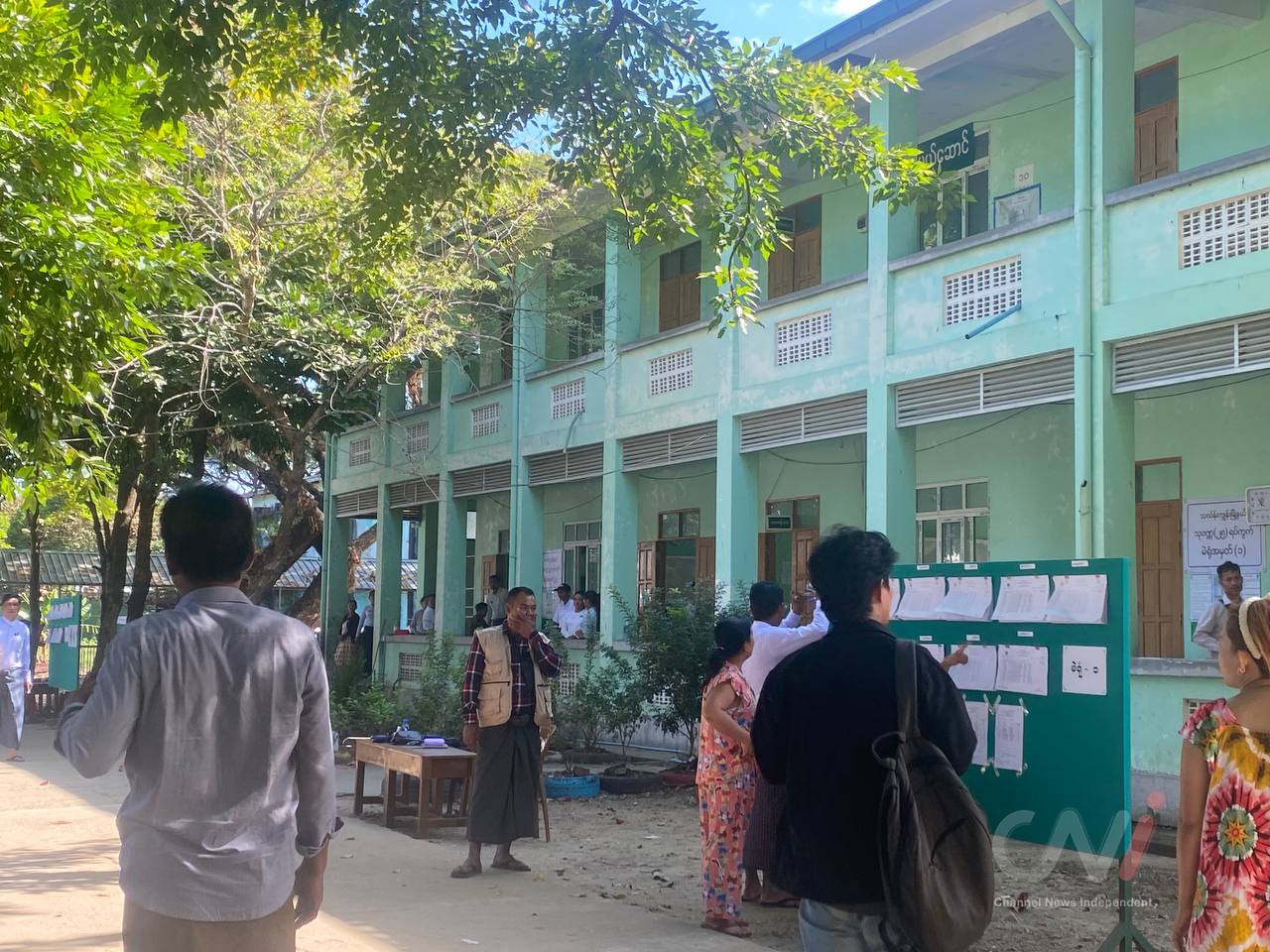
People checking lists to cast their votes.
Daw Nant Khin Aye Oo, Chairwoman of the Karen People's Party (KPP), told CNI News that public voter turnout was very weak and the process was unsatisfactory, leading many voters to lose their right to vote.
"From what I know, the turnout was very low. To be frank, there were hardly any people. This is due to a lack of technical expertise and the fact that different areas were following different formats—it was inconsistent. There were also many difficulties on the ground. For instance, ethnic voters have been unable to vote for their respective Ethnic Affairs Ministers; this happened in 2010, 2015, 2020, and now again in 2025.
Regarding the public, many found their names on the first preliminary voter list, but by the second list, they were gone. They reported this to the UEC with their IDs and were told they would be on the third list, but they were still missing. I believe this is a result of incompetence. Many errors are surfacing in the current operations. So many people couldn't vote. These are major human's weaknesses," she said.
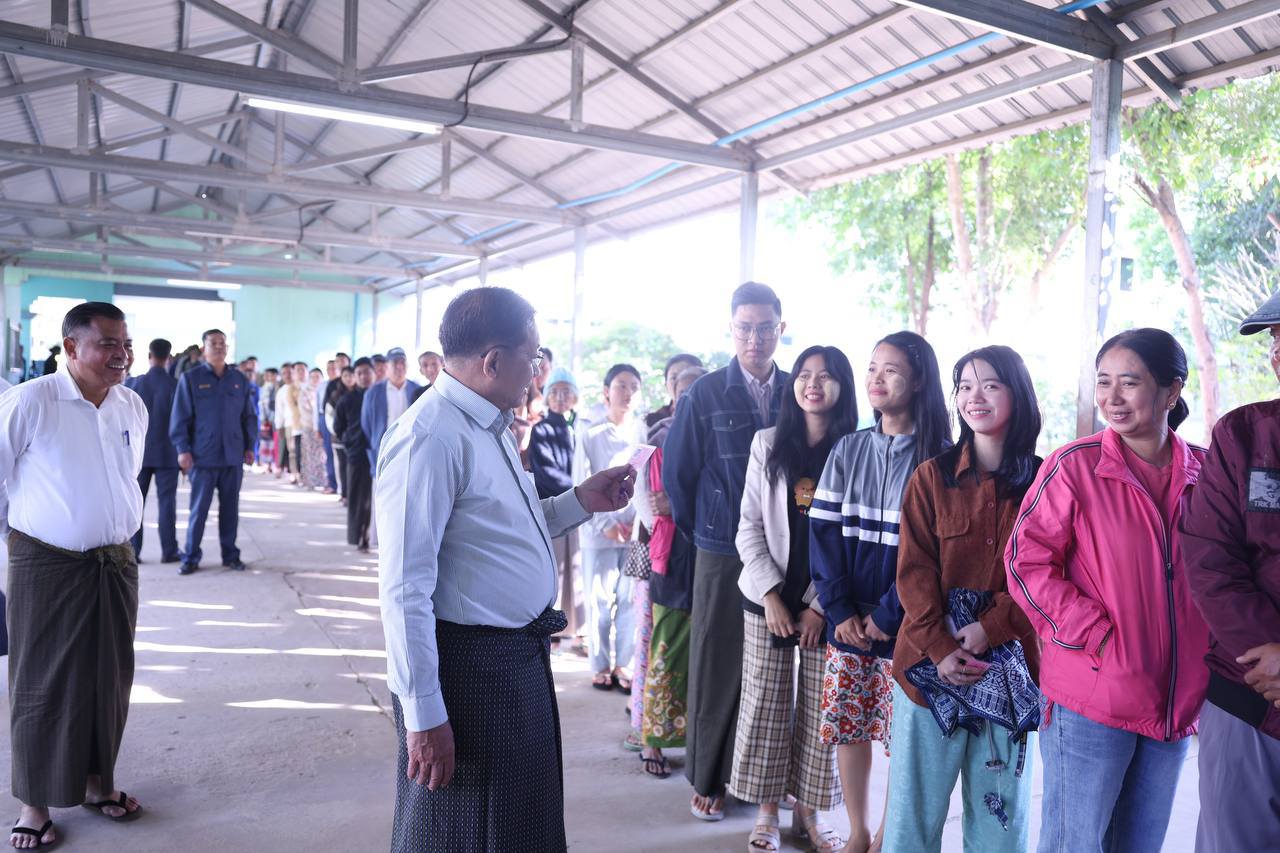
Senior General Min Aung Hlaing meeting with those who were about to vote
Revolutionary forces have issued statements urging the public not to vote or participate in the military-organized election, warning that effective action will be taken against those who collaborate. Consequently, many citizens faced difficulties casting their ballots due to security fears.
Conversely, some voters whose names were on the list were torn between whether to vote or not. They feared that if they stayed away for security reasons, authorities might cause trouble for them later, given that Ward Administrators hold all their household registration data.
As of now, it is reported that in the Phase 1 elections held on December 28, 2025:
The Union Solidarity and Development Party (USDP) has claimed victory in 80% of constituencies nationwide.
The USDP has reportedly won all seats in the Yangon Region and the Nay Pyi Taw Council Area.



